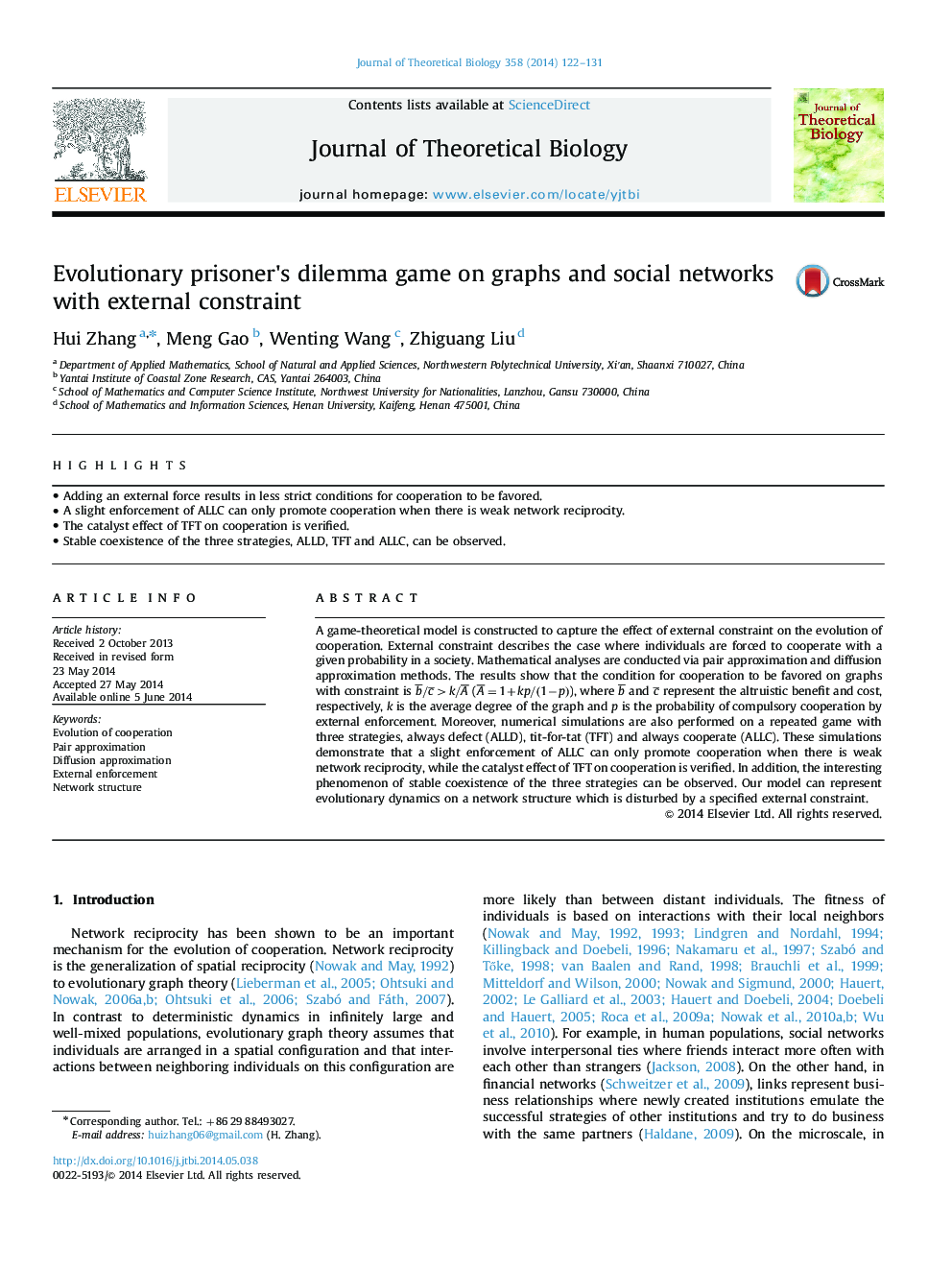| Article ID | Journal | Published Year | Pages | File Type |
|---|---|---|---|---|
| 6370540 | Journal of Theoretical Biology | 2014 | 10 Pages |
â¢Adding an external force results in less strict conditions for cooperation to be favored.â¢A slight enforcement of ALLC can only promote cooperation when there is weak network reciprocity.â¢The catalyst effect of TFT on cooperation is verified.â¢Stable coexistence of the three strategies, ALLD, TFT and ALLC, can be observed.
A game-theoretical model is constructed to capture the effect of external constraint on the evolution of cooperation. External constraint describes the case where individuals are forced to cooperate with a given probability in a society. Mathematical analyses are conducted via pair approximation and diffusion approximation methods. The results show that the condition for cooperation to be favored on graphs with constraint is b¯/c¯>k/A¯ (A¯=1+kp/(1âp)), where b¯ and c¯ represent the altruistic benefit and cost, respectively, k is the average degree of the graph and p is the probability of compulsory cooperation by external enforcement. Moreover, numerical simulations are also performed on a repeated game with three strategies, always defect (ALLD), tit-for-tat (TFT) and always cooperate (ALLC). These simulations demonstrate that a slight enforcement of ALLC can only promote cooperation when there is weak network reciprocity, while the catalyst effect of TFT on cooperation is verified. In addition, the interesting phenomenon of stable coexistence of the three strategies can be observed. Our model can represent evolutionary dynamics on a network structure which is disturbed by a specified external constraint.
